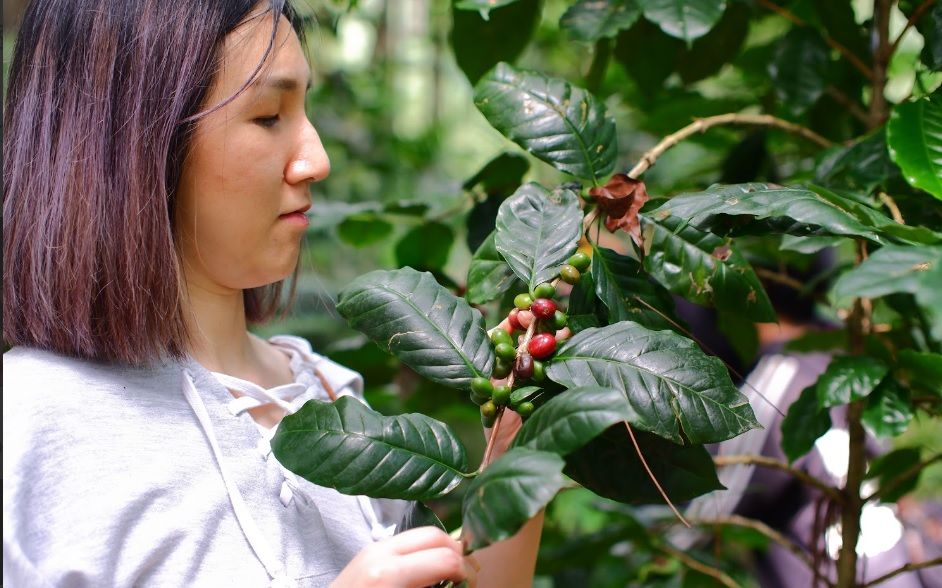Journey of coffee in indonesia
Indonesia Coffee Farmer Development Part I
Published: December 29, 2023 08:58 AM
Written by: Admin
Smallholder coffee growers in Indonesia have traditionally sold their coffee through customary networks that require preserving ties with local collectors. Before selling parchment coffee to a collector, farmers who grow arabica coffee typically pulp, ferment, wash, and partially dry the coffee on the farm. After passing through centralized processing mills, the semi-wet parchment coffee is either exported or sold to domestic roasters.

The several "middlemen" that the coffee goes through are supposed to lower their proportion of the ultimate value that is sold to consumers, which is why this conventional value chain structure has been criticized for being inefficient and exploitative of small growers. Specialty roasters suffer from an equally terrible arms-length connection with farmers, as they are unable to influence quality control protocols and enhance production processes on the farm. While consistency can be a major issue, Indonesia is known for producing some great, premium specialty coffees.
Roasters typically play a direct role in setting up relationship coffees. Through efforts to improve farmers' competencies, the Indonesian government and development NGOs have also promoted buyer interaction with coffee producers. This has included setting up farmer-run processing facilities, called Unit Pengolahan Hasil, where farmers receive training in quality control and processing tools (typically encouraged to dry-hull the parchment coffee). Such government support programs served as the foundation for five out of the six roaster connections that we observed.
Coffee-growing households will have better living conditions if coffee revenues rise.
In Indonesia, up to 2 million households are estimated to grow coffee as a means of subsistence; however, very few cultivate coffee exclusively. Coffee will be the primary source of cash income for some of these households; for others, it will be significantly less significant than the production of food crops, other cash crops, or non-farm revenues. One way to boost coffee earnings is through raising prices or production levels.
If there are significant opportunity costs or trade-offs, this extra income will not enhance lifestyles because doing so typically takes additional resources (capital, land, and/or labor). In certain cases, the family might be better off funding their kids' education in the hopes of finding employment in cities, or they could work as motorcycle taxi drivers (ojek) or start a warung (small eatery). Coffee is seen by farmers in places like North Sumatra as a backup crop that can provide a consistent source of income but is unlikely to increase household wealth.
Higher-quality coffee production will boost farmers' profits.
since producers could be facing more expenses and dangers in the process of improving quality. This covers the extra labor expenses associated with harvesting only red cherries, pulping smaller batches on a regular basis as opposed to collecting cherries every week, hand-removing harmed beans, and storing and drying the beans with care. These extra expenses frequently surpass any quality-related price increase.
in Sulawesi has demonstrated that, even in cases when farmer groups obtain greater prices for superior coffee, this value is frequently lost inside the farmer organization due to organizational inefficiencies, poor management, or the capture and control of processing facilities by local elites. Enhancing quality often means farmers are exposed to more risk because they will have to pay more in the hopes that quality and prices will rise as well. However, bad weather or other unforeseen circumstances can damage quality to the point where the premium vanishes and farmers are stuck bearing their higher production costs. Coffee growers may not always benefit from a quality improvement plan.
Avoiding the third-party seller will enable farmers to get better pricing.
Coyotes are frequently mentioned in Latin America, however the negative phrase "tengkulak" in Indonesian refers to unethical intermediaries. But if the intermediary is the most cost-effective supplier of financial, quality-control, and logistical services—as they frequently are—then this myth will fall apart. The farmer, a farmer cooperative, or the downstream buyer (exporter or roaster) will still need to perform these services.
When a farmer cooperative takes up this role (as in Sulawesi and Flores), the cooperative's expenses will likely be elevated due to potential inefficiencies or possibly corruption. Comparably, the costs of transportation, travel, and quality control will be significant for a nearby buyer (such a retailer or roaster). Farm-gate pricing will eventually experience downward pressure as a result of these increased transaction payments.
Other crucial tasks that middlemen frequently carry out include granting finance and supplying necessities that farmers could find challenging to obtain elsewhere. In Indonesia, interactions between traditional collectors and farmers can be closely linked to local familial ties through support and family. If these relationships break down, the collector may lose their source of income as well as their social capital. In several cases, "avoiding out the middleman" has actually led to lower farm-gate pricing in Indonesia.
Extra coffee processing at the farm level will increase its worth.
Processing steps for arabica coffee include pulping, fermenting, cleaning, grading, hulling, drying, roasting, grinding, and preparing beverages. Although it is technically possible to carry out all these processes at the farm level, there are two reasons why this isn't necessarily the best course of action for the farmer. Firstly, all these tasks are expensive and time-consuming, and when done on a small scale, the costs frequently outweigh the value produced.
Higher-quality coffee may bring in higher costs from consumers, and letting experts handle the processing will frequently increase value. For instance, we find in Sulawesi that farmers who sell wet parchment or fresh cherries to a centralized mill that has good quality control procedures (and a higher final price) receive higher prices per unit than farmers who try to roast or hull their own coffee but have less developed quality control systems. Farmers bear the inherent risks of fluctuations in prices and quality degradation when coffee is further processed at the farm level and kept for extended periods of time.
